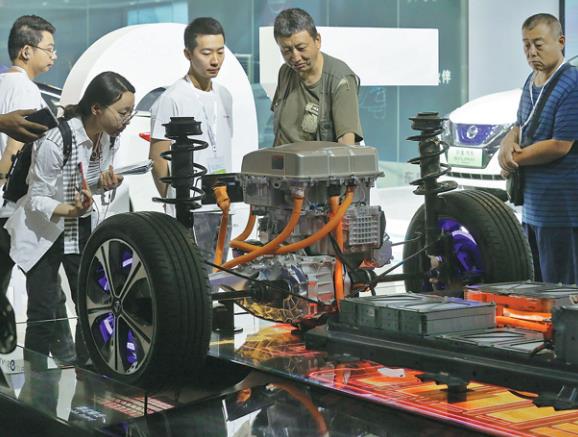Proposal to stimulate production of new energy vehicles in country


Analysts said the plan's release will help carmakers to coordinate their production plans, especially international ones, which have been slower than Chinese ones to respond to policy changes.
Herbert Diess, CEO of Volkswagen AG, called for a stable policy environment at the World New Energy Vehicle Congress held in early July in Hainan province.
The German carmaker said almost half of its new energy vehicles produced in 2028 will be made in China. China has been the largest market for new energy vehicles since it overtook the United States in 2015.
So far there are around 3.5 million such vehicles on its roads.
The country's new energy vehicle sales surged 65.9 percent year-on-year to 577,000 units during the January-June period, data from the China Passenger Car Association showed.
The draft proposal is expected to help boost hybrids as well, to which Japanese carmakers have devoted much time and money.
They would still be considered fossil-fueled but re-classified as "low fuel consumption passenger vehicles" and thus will incur less negative points than traditional vehicles.
Under the current system, automakers in China are obliged to make up for a portion of the negative points they incur when they produce internal combustion engine vehicles with points won for producing new energy vehicles.
Analysts said the revision could see more traditional vehicles replaced with hybrids, because when automakers produce hybrids. The proposed change came as a surprise, some experts and industry officials said, because the government has never before given any preferential treatment for hybrid technology.
"The new proposed policy is a roundabout way to promote hybrid cars," said Cui in a social media post.




































